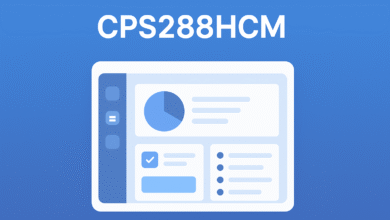Thealite Keep Safe: A Complete Guide to Staying Protected and Prepared

When it comes to safety and protection, one phrase that has recently gained attention is “thealite keep safe.” While the words may sound simple, they carry a deeper meaning for those who value security, mindfulness, and preparedness in daily life. Whether it refers to protecting your home, safeguarding your digital data, or simply maintaining a lifestyle built around well-being, “thealite keep safe” is all about creating habits that shield you from unnecessary risks.
In this article, we’ll break down what the concept of thealite keep safe really means, why it matters, and how you can apply it in different aspects of your life. From personal safety tips to digital protection strategies, you’ll learn how to adapt this mindset in practical, realistic ways.
Understanding the Meaning of Thealite Keep Safe
At its core, “thealite keep safe” can be seen as a philosophy rather than just a phrase. The word “thealite” itself suggests light, awareness, or something guiding. Combine it with “keep safe,” and you have a principle that encourages people to stay alert, cautious, and mindful in different environments.
One way to understand this concept is by seeing it as a reminder. In a world filled with distractions, dangers, and digital vulnerabilities, it’s easy to forget how small steps can prevent bigger problems. Thealite keep safe encourages you to pause and think: Am I doing enough to protect myself, my loved ones, and my data?
Moreover, this phrase doesn’t only apply to physical safety. It can also represent emotional and mental well-being. Keeping safe isn’t just about avoiding harm—it’s about building a balanced lifestyle where security is a foundation, not an afterthought.
Why Safety and Preparedness Matter More Than Ever

The modern world comes with countless conveniences, but it also brings unique risks. From rising cybercrime to everyday hazards like car accidents or health emergencies, people need to be more prepared than ever before. This is where thealite keep safe comes into play—it’s a mindset that can save you from unexpected challenges.
Think about how much time people spend online. Your personal information, financial details, and even conversations can easily become targets if you don’t protect yourself. Applying thealite keep safe digitally means using strong passwords, enabling two-factor authentication, and being cautious of scams.
On the physical side, safety is equally crucial. Road safety, workplace awareness, and even basic home security fall under this umbrella. Thealite keep safe doesn’t demand you live in fear—it just suggests you act wisely and prevent issues before they escalate. In short, it’s about being proactive, not reactive.
Thealite Keep Safe in Your Daily Life
So, how can you truly live by the principle of thealite keep safe? The answer lies in small, consistent practices that eventually form long-term habits. Safety isn’t about one big action—it’s about the sum of little steps you take every day.
For example, start with your personal health. Keeping safe here means eating well, exercising regularly, and not ignoring small symptoms that could become larger health issues. You’re essentially protecting your future by making conscious choices today.
Next, consider how you interact with your environment. Locking your doors, keeping an emergency kit at home, and wearing a seatbelt while driving are all everyday habits that reflect thealite keep safe. Each action might feel minor, but combined, they create a lifestyle of awareness and preparedness.
Digital Safety: Applying Thealite Keep Safe Online
In today’s digital-first world, safety isn’t only physical—it’s also virtual. One of the biggest areas where people can apply thealite keep safe is online security. Many individuals underestimate how vulnerable they are until they experience identity theft, a hacked account, or financial fraud.
Practicing thealite keep safe online starts with being mindful of what you share. Avoid oversharing personal details on social platforms, be cautious of suspicious links, and always verify emails before clicking. These simple actions drastically reduce your exposure to online threats.
Additionally, investing in good antivirus software, using VPNs for public Wi-Fi, and keeping your devices updated are all modern expressions of this safety mindset. When you treat your digital life with the same care as your physical life, you create a more complete sense of security.
Thealite Keep Safe for Families and Communities
Safety isn’t just an individual responsibility—it’s also something that impacts families and entire communities. If you adopt thealite keep safe as a personal principle, you also influence those around you to be more mindful.
For families, this can mean teaching children about basic safety habits like not talking to strangers, being careful with sharp objects, or learning how to dial emergency services. Parents can apply thealite keep safe by creating family safety plans, such as fire drills or emergency contacts.
In communities, the concept extends to looking out for each other. Neighborhood watch groups, safe driving campaigns, and even digital literacy programs can be part of applying thealite keep safe on a larger scale. The stronger the culture of safety, the more secure everyone becomes.
Emotional and Mental Well-Being as Part of Safety
While most people associate “keeping safe” with physical or digital security, it’s equally important to focus on emotional and mental safety. Stress, anxiety, and emotional neglect can be just as harmful as physical dangers. Thealite keep safe also means creating boundaries that protect your peace of mind.
This could involve limiting toxic relationships, practicing mindfulness, or taking regular breaks from work and technology. Just as you would lock your front door at night, you should also guard your mental space from negativity and burnout.
When you prioritize mental safety, you not only protect yourself but also create stronger relationships and healthier environments for those around you. Emotional resilience is a powerful shield that aligns perfectly with thealite keep safe.
Practical Tips to Live by Thealite Keep Safe
To make thealite keep safe more actionable, here are some practical steps you can start applying right away:
- Health First: Schedule regular check-ups, stay active, and listen to your body.
- Digital Awareness: Use strong, unique passwords and stay alert against phishing attempts.
- Home Security: Keep doors and windows locked, and install basic security systems if possible.
- Emergency Preparedness: Keep first aid kits, flashlights, and backup plans ready for unexpected events.
- Mindful Living: Practice self-care, set boundaries, and nurture your mental well-being.
Each of these tips is simple, but together they form a lifestyle that fully embodies thealite keep safe.
Final Thoughts on Thealite Keep Safe
In essence, thealite keep safe isn’t just a phrase—it’s a mindset and lifestyle choice. It reminds us that safety and preparedness are not optional luxuries but essential foundations for a secure and fulfilling life. From protecting your home to safeguarding your data, from caring for your health to nurturing your mental peace, every step you take contributes to a stronger, safer you.
The best part about adopting this principle is that it doesn’t require major sacrifices. Instead, it calls for awareness, small actions, and consistent habits that eventually become second nature. Once you embrace thealite keep safe, you’ll notice how much calmer, more prepared, and more confident you feel in every area of life.
So, the next time you hear the phrase “thealite keep safe,” think of it not just as words but as a personal reminder. A reminder that your safety, your loved ones’ well-being, and your peace of mind are worth protecting—every single day.



